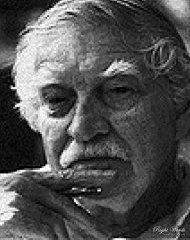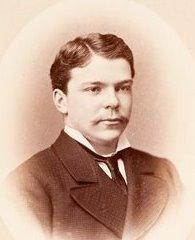May Quotes - Page 331
Harry S. Truman, Howard B. Furer, United States. President (1945-1953 : Truman) (1970). “Harry S. Truman, 1884- : chronology-documents-bibliographical aids”, Oceana Pubns
"ABC Special Report" with Barbra Walters, March 24, 1997.
There is no death to those who perfectly love-only disappearance, which in time may be borne.
Harriet Martineau, Elisabeth Sanders Arbuckle (1983). “Harriet Martineau's Letters to Fanny Wedgwood”, p.30, Stanford University Press
Harriet Martineau (1836). “Philosophical essays. Essays on the art of thinking. Sabbath musings. Moral essays. Parables. Poetry”, p.259
Harriet Lerner (2009). “The Dance of Connection: How to Talk to Someone When You're Mad, Hurt, Scared, Frustrated, Insulted, Betrayed, or Desperate”, p.2, Harper Collins
Harriet Beecher Stowe, Charles Edward Stowe (1889). “Life of Harriet Beecher Stowe: Compiled from Her Letters and Journals”
Tyson and Brother v. Banton, 273 U.S. 418, (451), 1927.
A corrupt practice may be abolished, but a soiled imagination is not easily cleansed.
Hannah More (1835). “The works of Hannah More”, p.175
Hannah More (1840). “The Miscellaneous Works of Hannah More”, p.474
Hannah More (1834). “The works of Hannah More, with a memoir and notes”, p.291
Hannah More (1835). “Works, Complete”, p.290
Hannah Arendt, Ronald Beiner (1989). “Lectures on Kant's Political Philosophy”, p.96, University of Chicago Press
Letter to "The Keicomolo" - Kleiner, Cole, and Moe (October 1916), in "Selected Letters I, 1911-1924" edited by August Derleth and Donald Wandrei, (pp. 26-27), 1964.
H.L. Mencken (2012). “Mencken Chrestomathy”, p.545, Vintage







